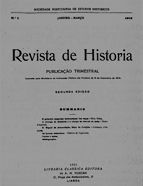

................................
Within the general characteristics of the membership universe, some sociodemographic trends can be highlighted, although it is important to note gaps in the available information, with approximately 40% of data missing for some fields. Regarding the academic background of members, it may be concluded that the primary institutions where members pursued their education were, firstly, the University of Coimbra, particularly in Law (e.g., Costa Lobo and Ginestal Machado); secondly, the Curso Superior de Letras (the predecessor of the current Faculty of Arts of the University of Lisbon), represented by figures such as Fidelino de Figueiredo, David Lopes, and Vieira de Almeida. Other institutions are also represented, including the Lisbon Polytechnic School, military academies (Naval and Army), the Philosophy courses at Coimbra, and the Medical School of Porto. The most prominent academic fields were the Humanities, followed by Law, Medicine, Sciences, and military training, which aligns with the figures involved and the ambiguity surrounding the concept of professional histor y at the time. Members’ geographic origins were diverse, with the majority born in the district of Lisbon, followed by Porto and Coimbra— the major urban centres with potentially higher literacy rates. The SPEH brought together a notable array of professionals from varied occupation , most notably academics and university professors, who constituted the majority of members, possibly lending the organisation greater legitimacy. Examples of these individuals have already been mentioned. This composition is significant, as the initiative did not originate from the university, which largely represented the official culture. Other professions are also noteworthy, such as secondary school teaching (e.g., Fidelino de Figueiredo), the military (e.g., Afonso Dornelas), and members of the clergy (e.g., Father Ernesto Sales). This diversity reflects SPEH's broader approach and its avoidance of the more radical Republican perspectives against the clergy.
This work is financed by national funds through FCT - Foundation for Science and Technology, I.P, in the scope of the projects UIDB/04311/2020 and UIDP/04311/2020.
